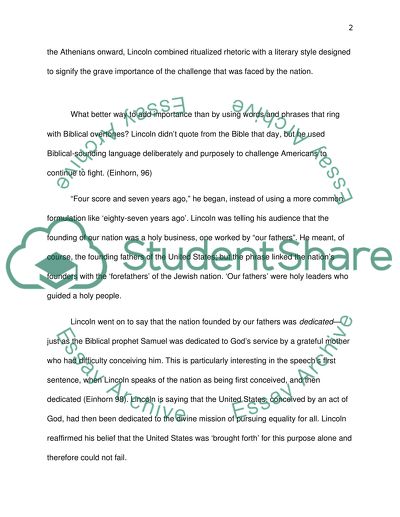Cite this document
(“The Gettysburg Address: Lincolns Literary Masterpiece Essay”, n.d.)
Retrieved from https://studentshare.org/english/1431915-the-gettysburg-address-lincolns-literary-masterpiece
Retrieved from https://studentshare.org/english/1431915-the-gettysburg-address-lincolns-literary-masterpiece
(The Gettysburg Address: Lincolns Literary Masterpiece Essay)
https://studentshare.org/english/1431915-the-gettysburg-address-lincolns-literary-masterpiece.
https://studentshare.org/english/1431915-the-gettysburg-address-lincolns-literary-masterpiece.
“The Gettysburg Address: Lincolns Literary Masterpiece Essay”, n.d. https://studentshare.org/english/1431915-the-gettysburg-address-lincolns-literary-masterpiece.


